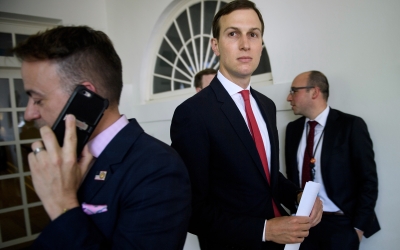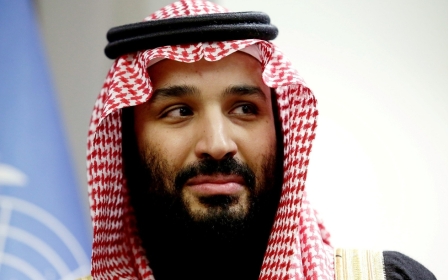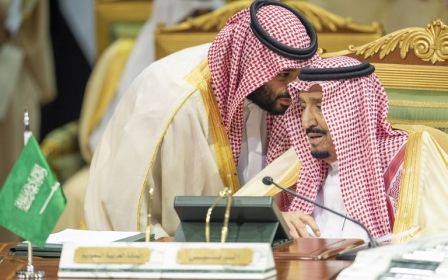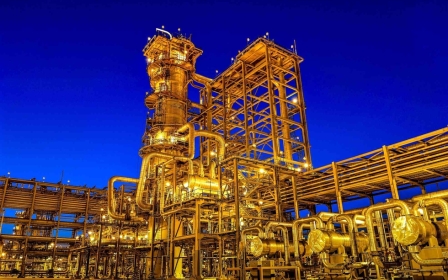Saudi Crown Prince's economic policies baffle local private sector: Report
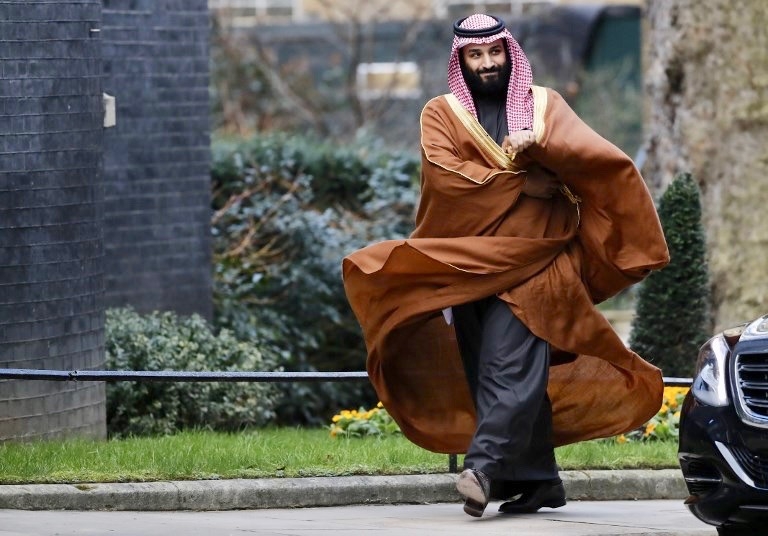
Saudi Arabia's economic reforms have left the country's private sector dazed and hurt by fluctuating policies, political misshaps and a fleeing expatriate population, the Financial Times reported on Sunday.
Some 1.7m foreigners have left the country, driven away by massive subsidy cuts and the introduction of VAT, which have also slashed the household spending of those who remained and of Saudi families, the report said.
According to the FT, rising costs and the exodus of foreigners have come as a significant blow to local businesses. The report cited an unnamed lawyer as saying that their office has been involved in the winding down of more than 50 businesses over the past 18 months.
Vision 2030, Saudi Arabia's grand economic package designed to wean the kingdom off oil and diversify its economy, hinges on a bigger role from the private sector.
Currently, the private sector contributes around 40 percent of the kingdom's GDP, with Riyadh aiming to raise that to 65 percent.
New MEE newsletter: Jerusalem Dispatch
Sign up to get the latest insights and analysis on Israel-Palestine, alongside Turkey Unpacked and other MEE newsletters
The government's goal of cutting unemployment from 12.5 percent to nine percent by next year also requires the creation of 450,000 non-government jobs by 2020.
However, local businesses have reeled from government policies.
A fall in household spending caused by hikes in tariffs for foreign workers triggered a plunge in profits, a spike in business costs and deflation resulting from a fall in consumer demand, the FT report noted.
Furthermore, the 2014 drop in oil prices saw the government failing to pay tens of billions of dollars for public contracts.
“There are about 7,000 industrial firms in Saudi Arabia and many of them are losing money or barely making money,” an anonymous foreign executive was quoted as saying by the FT.
A purge of influential Saudi figures, which has been labelled an anti-corruption campaign by authorities and saw more than 300 princes, businessmen and former state employees incarcerated at the Ritz-Carlton hotel in Riyadh in 2017, has also harmed trust between national entrepreneurs and the government, the paper said.
According to the FT, the private sector has opted to sit on its own cash or look offshore for investment opportunities as the situation in the kingdom looked so volatile.
'They are respected now'
According to people familiar with the royal court cited by the FT, the young prince was looking to create a new stratum of foreign partners to undertake the hundreds-of-billions of dollars worth of deals announced by "the newly empowered Public Investment Fund", to replace "traditional companies he viewed with disdain for having got rich on the back of state contracts and cheap foreign labour".
His plans, however, may have been put off after the brutal murder of journalist Jamal Khashoggi in November 2018 drove potential foreign investors to think twice before pumping money into the kingdom's coffers and infrastructure, the report noted.
This led to the prince and his cabinet once again looking at national businesses for partnership.
“They are respected now - before, they were spat on,” a foreign executive told the FT.
Finance Minister Mohammed al-Jadaan told the daily that the government has settled arrears of SR160bn ($43bn) to companies over the past two years and only owes about SR9bn, some of which is disputed.
Despite what the IMF described last month as "positive results" of the Saudi economic reforms, the FT noted that the government's aggressiveness over austerity did not match progress on other fronts, such as the promised privatisation programme.
“Some of the companies . . . their unhappiness or resentment is not about the reform itself, but the pace of [fiscal] reform and the lag of economic reform,” a retired Saudi banker told the daily.
“How many public-private partnership projects? You can count them on your hands. How many privatisations have taken place? Almost none.”
Businessmen of Jeddah, the commercial capital that is culturally and politically different from the more conservative Riyadh, have largely been at the receiving end of recent economic and political policies, the report said, with those detained in the Ritz Carlton being mostly from this province, and their investments significantly impacted by the state's interventions.
According to the report, some see the role of the $300bn PIF as "contentious", serving as a personal tool of MBS that is "crowding out the private sector".
Such doubt and scepticism invoked by government policies among the national private sector is a key challenge facing the ambitions plans of the young prince.
Middle East Eye delivers independent and unrivalled coverage and analysis of the Middle East, North Africa and beyond. To learn more about republishing this content and the associated fees, please fill out this form. More about MEE can be found here.


